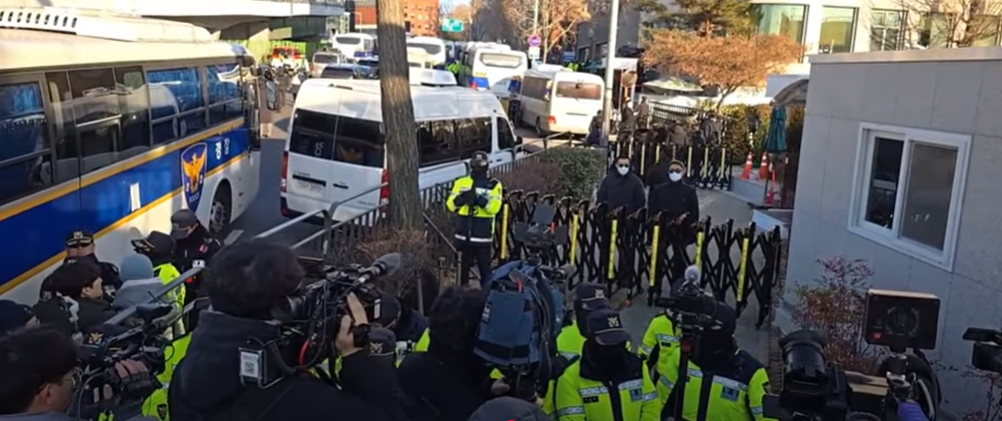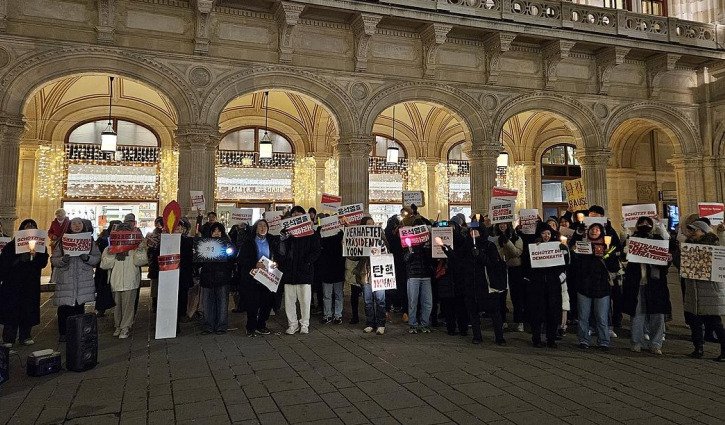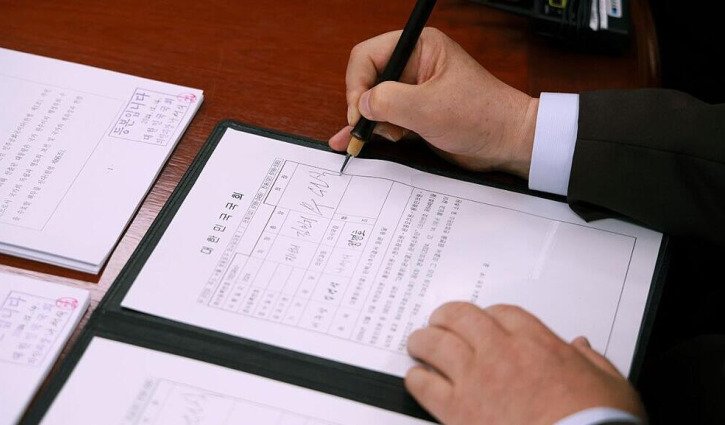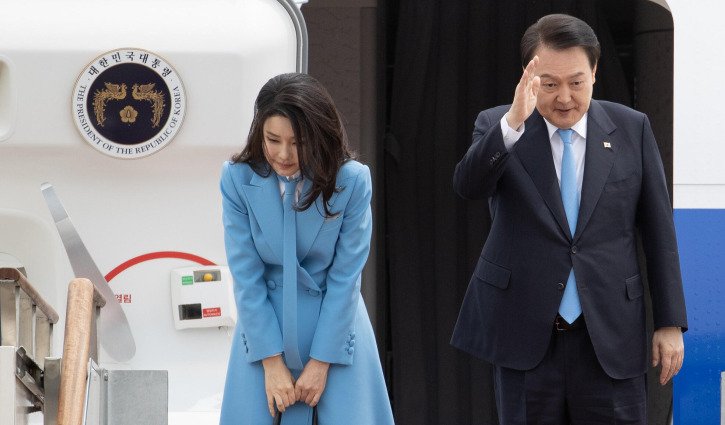The Corruption Investigation Office for High-Ranking Officials (CIO) arrested South Korean President Yoon Suk Yeol on Wednesday.
The arrest follows his controversial declaration of martial law in December. To justify his position, he alleged that the liberal opposition controlled parliament and sympathised with North Korea.
As a result of the declaration, he was impeached and accused of insurrection and abuse of power.
In a tense standoff at Yoon's residence, hundreds of police officers and anti-corruption investigators participated in the arrest.

Detention of a sitting South Korean leader is unprecedented. It was a chaotic scene as Yoon's supporters clashed with authorities. While Yoon's legal team claimed that the arrest warrant was illegal, he eventually agreed to cooperate in order to prevent further violence.
"To prevent an unfortunate and violent incident, I decided to appear before the CIO even though I believe the investigation is illegal," Yoon said in a video message recorded at his residence in Yongsan, central Seoul, as reported by Yonhap News Agency.
A significant impact on stability and governance has resulted from this unprecedented event in South Korea.
Yoon's policies have had mixed results. South Korea has maintained its position as a leading global economy through export-led growth and technological advances under his administration. In spite of this, the political instability caused by his actions has raised concerns about the country's fiscal future. Continuing protests and legal battles could disrupt economic activity and investor confidence.
Despite global challenges, the South Korean economy has shown resilience, but the current political turmoil adds to the uncertainty. Moreover, the weakening of the Korean Won against the US Dollar and the rise in energy prices have further complicated the economic situation.
Related content



